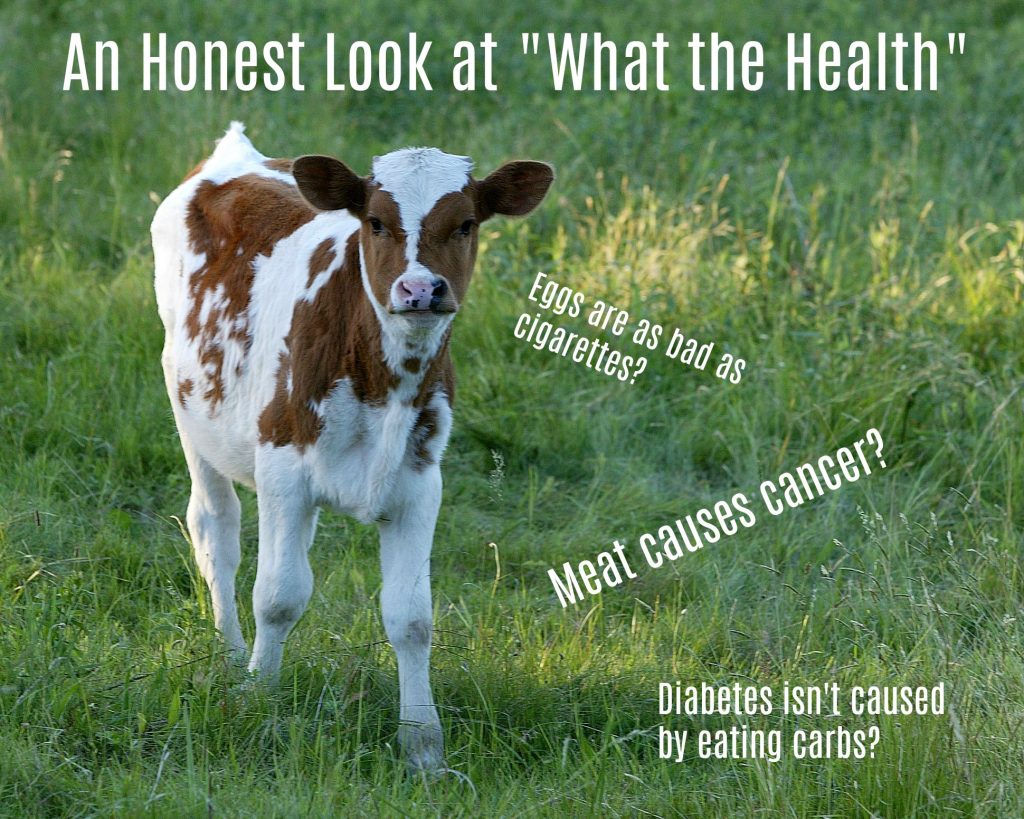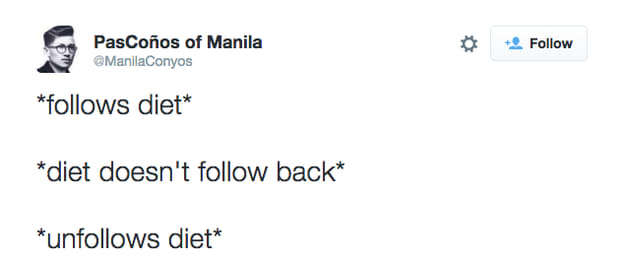
The intention of this post is not to bash someone trying to make the world a healthier place. As a whole, I completely agree that we and our environment would be better off if we ate less factory farmed meat, fish, eggs, and dairy. That does not make it OK to demonize a certain macronutrient (in this case fat) using scare tactics and over-stated “research.”
I understand the filmmakers intention: convince the world to eat less meat. This isn’t Kip Anderson’s first rodeo. In Cowspiracy, he suddenly discovers that consuming animal products is bad for the environment. He attempts to contact organizations like GreenPeace and the Sierra Club about why they are not showcasing this fact on their websites, gets denied for interviews, then “finds out” that these organizations are backed by processed animal foods companies and agribusiness.
Does the plot line seem a little familiar? If you haven’t seen What the Health, it’s more of the same. Kip wakes up one day to find that eating meat is bad for his health, randomly calls the American Diabetes Association hotline to ask why they post recipes with red meat on their website, and does a Google search to find that they are backed by companies like Dannon. Did he really expect the guy on the phone to be able to answer his nutrition questions? The film then goes on to interview experts that claim that sugar and carbs are not detrimental to health but fat is the devil.
I have no idea why the filmmakers decided to turn it into a fat vs. sugar argument and argue that sugar does not cause diabetes and carbohydrates do not make you fat. Anyone who has taken a basic carbohydrates or lipid metabolism class could debate their “experts” on these claims. My jaw dropped when one of the physicians was explaining how you get diabetes from eating dietary fat.A low fat diet is not the magic answer, just like a low carb diet is not the magic answer, regardless of what the question is. Another expert talked about how terrible eggs are for you because of their cholesterol content. We’ve known for decades now that dietary cholesterol has no effect on cholesterol markers in the blood. This is outdated science that these guys are just regurgitating and using to conveniently back their claims. When someone says “I found one study that says that…” that’s a huge red flag.
The reason why nutrition is such a hotly debated topic is because there is no one-size-fits all answer. There is no perfect diet. One person may thrive on a high fat, ketogenic diet while another may feel their best eating vegan. Your genetics plays a huge role in what your specific nutrient needs are.
I can’t overstate that I am totally in favor of the main points What the Health is trying to make. Eat more plants. Our government has too many ties with the pharmaceutical and ag industry. The FDA/USDA make biased dietary recommendations based on the funding they receive. But honestly, when is the last time you’ve actually looked at a government website to determine what you should have for your next meal?
Kip, did you really just wake up one day and realize that bacon cheeseburgers weren’t good for you? Everyone already know that cheeseburgers aren’t great for our health or the environment. We know that the government is taking money from companies like Coke and Pfizer. People with diabetes eat red meat and drink Diet Coke anyway. Doctors are going to keep prescribing meds instead of dealing with the underlying causes of the patients issues. Organizations like the American Diabetes Association are not going to ask every American with diabetes to go vegan, just like I’m not going to ask every client that walks in my office to go vegan. When people are ready to change, they will change. If they come to me asking for help to eat more plant-based, I’m all for it, but I’m not going to shove what I might think is “a perfect diet” down anyone’s throat.
Don’t get caught up in the business of fear-mongering when it comes to food. Do your best to fuel your body. Don’t just fall into doing what your best friend is doing, the latest Oprah diet, or picking one nutrient to demonize or cut out. Remember a few years ago when Fed Up came out and everyone went on sugar detoxes?
If you watch this documentary and walk away with the knowledge that you need to eat less meat and dairy, great. If that translates into you preparing more meals at home, eating more greens, and thinking more about how your food lands on your plate, then the filmmakers did their job. But don’t think that cutting out fat is the answer. Foods like avocados, nuts, seeds, and olive oil are extremely nutritious foods that fuel your body and send a satisfaction signal to your brain. Without fat, you won’t feel satisfied, especially by piling on more carbs.
About the author: Megan Poczekaj, RDN, LD, is a registered dietitian nutritionist in Orlando, FL. She owns the private practice, Nutrition Awareness, where she teaches other entrepreneurs how to maximize their productivity and performance with nutrition. She is the author of the book The Optimized Life: A Nutrition Guide for Entrepreneurs and co-host of the Nutrition Awareness Podcast.


